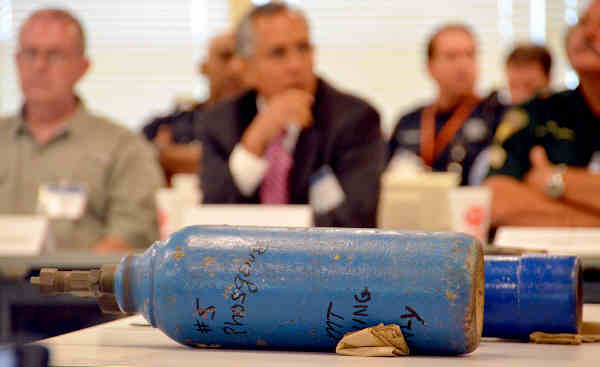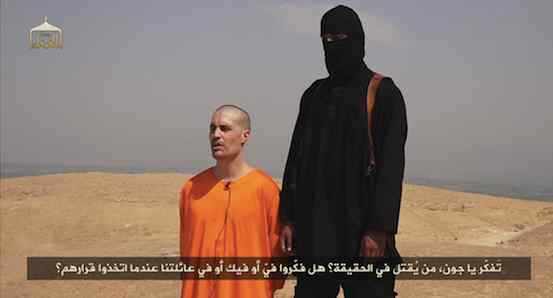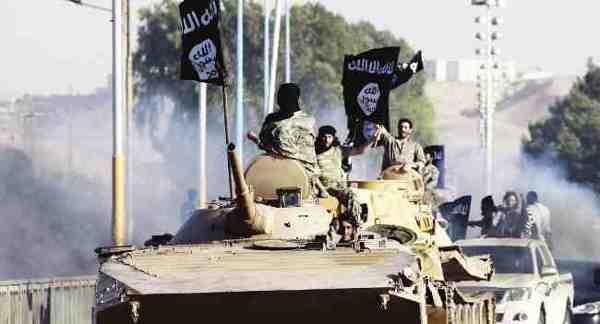Threats from ISIS. U.S. Gets Ready to Deal with Chemical Attack

By Rakesh Raman
A fictional worst-case scenario was designed a few days ago by the FBI’s (Federal Bureau of Investigation in the U.S.) Chemical Countermeasures Unit—part of the Weapons of Mass Destruction (WMD) Directorate—to shake out any weaknesses in the region’s elaborate network of emergency responders.
Such mock exercises are inevitable for the U.S. as it’s believed that its major enemy ISIS (Islamic State of Iraq and Syria) possesses chemical weapons and has recently acquired the capabilities to make a nuclear bomb.
New reports suggest that ISIS has looted nuclear material from Iraq’s Mosul University and the terrorists outfit is now threatening to make a dirty (nuclear) bomb.
Moreover, ISIS has warned Americans, saying: “you will not feel secure even in your bedrooms.” The warning was published in a recent issue of Islamic State magazine Dabiq.
Therefore, the U.S. is getting ready to counter such threats from ISIS and other adversaries keeping in view the troubled situation in the Islamic world.
The daylong FBI exercise, attended by more than two dozen local, state, and federal agencies, raised all the tangly issues that come up in real catastrophic events: Who has jurisdiction? Who is the lead investigative agency? Who is qualified to appropriately respond?
The FBI’s WMD countermeasures program consists of outreach activities and the establishment of tripwires. Put simply, according to FBI, countermeasures are actions taken to counter, detect, eliminate, or offset the WMD threat.
[ Also Read: Do You Recognize This Man? Asks FBI ]
Tripwires, meanwhile, are the formal mechanism put in place to facilitate reporting of potential WMD threats. Tripwires establish an early warning network of WMD threats with FBI partners who are in the best position to report, such as state and local public health, academic researchers, and members of industry.
“It’s an excellent opportunity for everybody to get together and learn what each other’s capabilities are,” said Special Agent Amanda Koldjeski, a WMD coordinator in the FBI’s Houston Division, which hosted the training event in October as part of the Bureau’s ongoing effort to reach out to first responders and high-risk chemical facility operators about potential threats in their areas.
The exercise in Houston brought together agencies from the federal, state, and local levels, including the Department of Homeland Security and the Drug Enforcement Agency.
In the picture above: Chemical storage tanks provided a visual aid during an FBI-led exercise in Houston designed to test emergency responders in the event of a chemical attack.
By Rakesh Raman, the managing editor of RMN Company
You also can read: More Articles by the RMN Editor, Rakesh Raman
Photo courtesy: FBI





